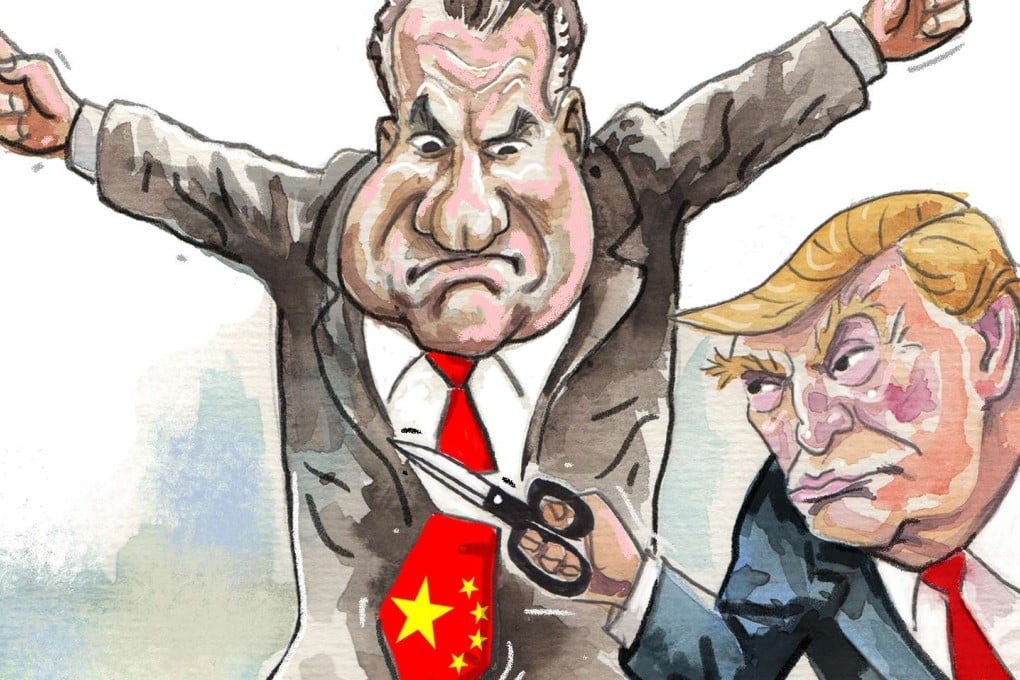Remembering Nixon, a Trump White House can only be bad for China-US ties
Jean-Pierre Lehmann says the contrasting fortunes of the two nations since Nixon’s landmark 1972 visit bring home the challenges of a Trump presidency


What Americans termed the “fall” of China – the victory of the Communists – had unleashed powerful forces of anti-communism and purges under the aegis of the “House of Un-American Activities”. Nixon, a lawyer by training, had been conspicuous in these activities as a hardliner; hence, his anti-communist credentials were impeccable. The visit was a huge “black swan” event; eminent Canadian historian Margaret Macmillan subtitled her book, Nixon and Mao, “The Week That Changed the World”. It did; and how!
Watch: Nixon visits China in 1972
China should welcome a strong and prosperous America – in words as well as deeds
Watch: Xi Jinping defends globalisation in Davos
China will be the clear winner if Trump declares a trade war
From having been ostracised by the international community, China is today present everywhere and much solicited everywhere. After the opening-up reforms in the 1980s under the leadership of Deng Xiaoping (鄧小平), China rapidly became the world’s biggest export power and hub of global manufacturing supply chains.
In the past decade, its global conspicuousness has been evident in other ways. It is a major source of capital and acquirer of US Treasury bills; a major source of aid to developing and least developed countries; a major source of outward foreign direct investment; a major investor in international property; a major funder of global infrastructure projects, notably with its “One Belt, One Road” initiative; a major source of outbound tourism, with more than 120 million Chinese tourists having gone overseas in 2015; and a major source of overseas students, especially to the US, Britain and Australia.
Under Donald Trump, the US will accept China’s rise – as long as it doesn’t challenge the status quo
China has come a long way from its days of having been marginalised as a non-entity in the world economy. Today, it is no exaggeration to say that if the Chinese economy were to sneeze – which is not impossible – the rest of the world economy would catch pneumonia.
